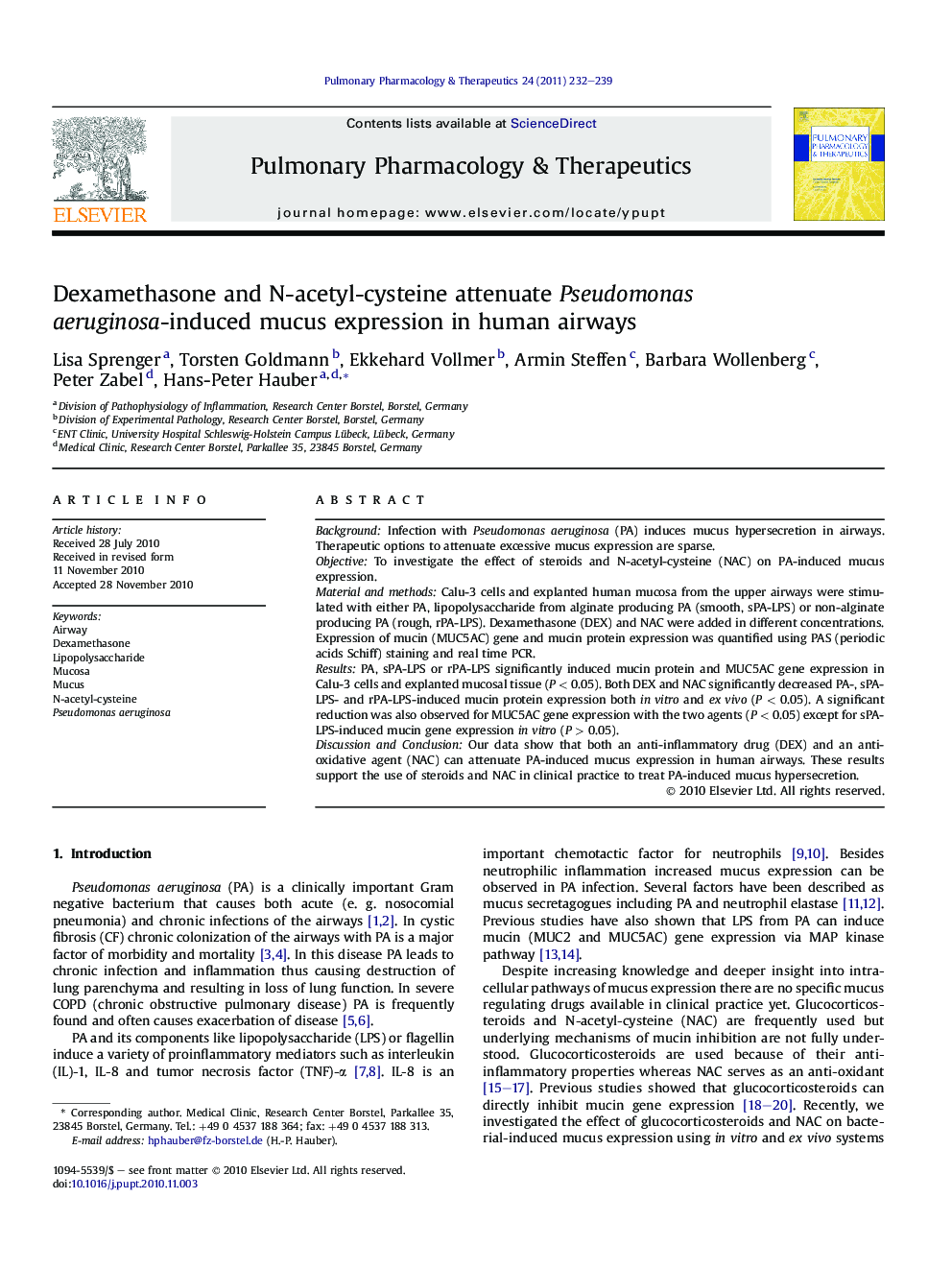| Article ID | Journal | Published Year | Pages | File Type |
|---|---|---|---|---|
| 2567087 | Pulmonary Pharmacology & Therapeutics | 2011 | 8 Pages |
BackgroundInfection with Pseudomonas aeruginosa (PA) induces mucus hypersecretion in airways. Therapeutic options to attenuate excessive mucus expression are sparse.ObjectiveTo investigate the effect of steroids and N-acetyl-cysteine (NAC) on PA-induced mucus expression.Material and methodsCalu-3 cells and explanted human mucosa from the upper airways were stimulated with either PA, lipopolysaccharide from alginate producing PA (smooth, sPA-LPS) or non-alginate producing PA (rough, rPA-LPS). Dexamethasone (DEX) and NAC were added in different concentrations. Expression of mucin (MUC5AC) gene and mucin protein expression was quantified using PAS (periodic acids Schiff) staining and real time PCR.ResultsPA, sPA-LPS or rPA-LPS significantly induced mucin protein and MUC5AC gene expression in Calu-3 cells and explanted mucosal tissue (P < 0.05). Both DEX and NAC significantly decreased PA-, sPA-LPS- and rPA-LPS-induced mucin protein expression both in vitro and ex vivo (P < 0.05). A significant reduction was also observed for MUC5AC gene expression with the two agents (P < 0.05) except for sPA-LPS-induced mucin gene expression in vitro (P > 0.05).Discussion and ConclusionOur data show that both an anti-inflammatory drug (DEX) and an anti-oxidative agent (NAC) can attenuate PA-induced mucus expression in human airways. These results support the use of steroids and NAC in clinical practice to treat PA-induced mucus hypersecretion.
